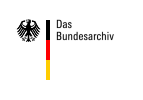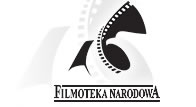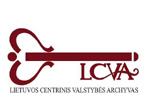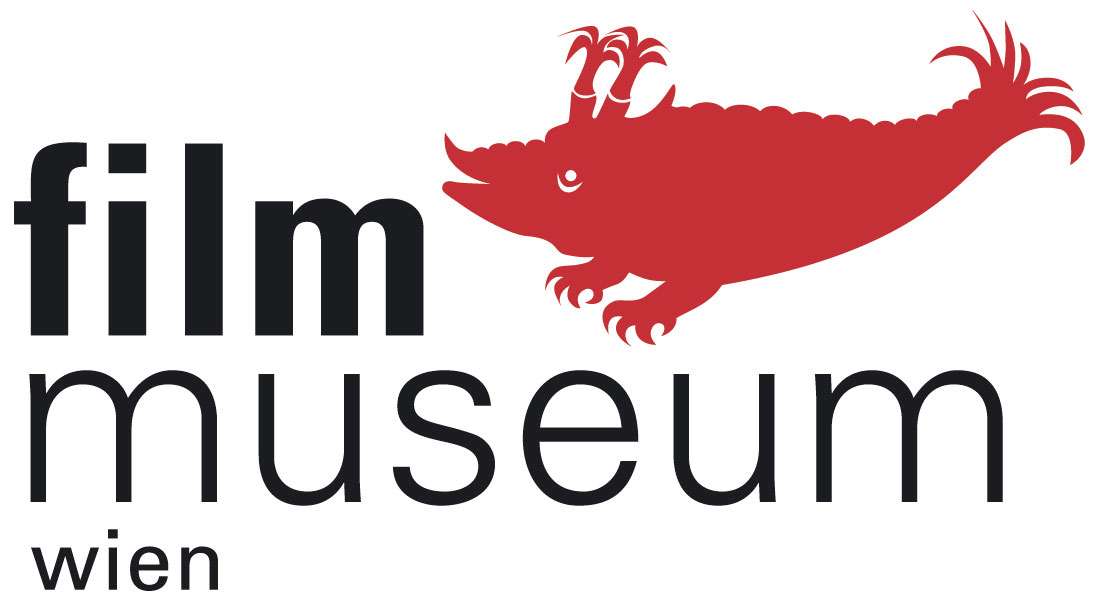![]() >> www.cnc-aff.fr The CNC French Film Archives were created in 1969 on the initiative of André Malraux, Minister of Culture, so that the state could take over the inventory and conservation of old films, including those on nitrate supports. Subsequently, the collections of old films steadily grew. In addition to voluntary deposits, donations, and acquisitions, legal deposits for films were implemented in 1977 and became the CNC’s responsibility in 1992.
>> www.cnc-aff.fr The CNC French Film Archives were created in 1969 on the initiative of André Malraux, Minister of Culture, so that the state could take over the inventory and conservation of old films, including those on nitrate supports. Subsequently, the collections of old films steadily grew. In addition to voluntary deposits, donations, and acquisitions, legal deposits for films were implemented in 1977 and became the CNC’s responsibility in 1992.
Turinį pateikiantys archyvai
>> www.cncinema.abt.ro Arhiva Nationala de Filme (ANF) was established in 1957 as sole institution in Romania that collects, preserves and uses films for non-commercial purposes. Over the years it has been active in finding and identifying films, cataloguing as well as carrying out a series of studies on the history of Romanian cinema. It is a member of FIAF since 1960 and member of ACE since 1996.
 >>www.bundesarchiv.de It is the concern of every cultured nation to maintain, care for, make accessible to the public and continually supplement its stock of moving pictures. The Federal Republic of Germany primarily fulfils this responsibility through the Federal Archives. The Federal Film Archive in Berlin is one of the largest archives of its kind in the world.
>>www.bundesarchiv.de It is the concern of every cultured nation to maintain, care for, make accessible to the public and continually supplement its stock of moving pictures. The Federal Republic of Germany primarily fulfils this responsibility through the Federal Archives. The Federal Film Archive in Berlin is one of the largest archives of its kind in the world.
 >> www.cinecitta.com Cinecittà Luce yra viešoji įmonė, įgyvendinanti Italijos kultūros ministerijos politiką Italijos filmų pramonėje. Ji buvo sukurta sujungus Cinecittà Holding ir Istituto Luce, kuris buvo pirmoji, 1924 m įkurta valstybinė filmų kompanija Europoje.
>> www.cinecitta.com Cinecittà Luce yra viešoji įmonė, įgyvendinanti Italijos kultūros ministerijos politiką Italijos filmų pramonėje. Ji buvo sukurta sujungus Cinecittà Holding ir Istituto Luce, kuris buvo pirmoji, 1924 m įkurta valstybinė filmų kompanija Europoje.
![]() >>www.cinemateca.pt Portugalijos kinoteka yra nacionalinis Portugalijos filmų muziejus. Tai valstybės institucija, sauganti ir demonstruojanti portugalų bei pasaulio kino paveldą. 50-ųjų pradžioje Kinoteką įkūrė Manule Felix Ribeiro. 1980 metais ji tapo autonomine institucija.
>>www.cinemateca.pt Portugalijos kinoteka yra nacionalinis Portugalijos filmų muziejus. Tai valstybės institucija, sauganti ir demonstruojanti portugalų bei pasaulio kino paveldą. 50-ųjų pradžioje Kinoteką įkūrė Manule Felix Ribeiro. 1980 metais ji tapo autonomine institucija.
>>www.cinematek.be The Cinémathèque Royale is one of the most important archives in Europe and in the world, due to its collections, its activities in exhibiting and distributing archival films across Europe, its role in the International associations of Archives (FIAF, ACE), its technical staff who has a history o
![]() >> www.cinetecadibologna.it Bolonės kinoteka yra municipalinė institucija, kurios pirminė misija – visais įmanomais būdais bei išraiškos priemonėmis saugoti ir skleisti filmų paveldą. Ji atsirado 1960-aisiais kaip Bolonės kino komisijos tąsa, akcentuodama paprastą idėją - kultūrinė praeitis yra gyva ir turi ateitį. Nuo to laiko ši kino paveldo atradimo ir atkūrimo idėja sklando visur: tyrinėjant šaltinius, kaupiant kolekcijas; perteikiant saugojimo ir restauravimo žinias bei įgūdžius, mokant žmones, kuriant ryšių bei mainų tinklą.
>> www.cinetecadibologna.it Bolonės kinoteka yra municipalinė institucija, kurios pirminė misija – visais įmanomais būdais bei išraiškos priemonėmis saugoti ir skleisti filmų paveldą. Ji atsirado 1960-aisiais kaip Bolonės kino komisijos tąsa, akcentuodama paprastą idėją - kultūrinė praeitis yra gyva ir turi ateitį. Nuo to laiko ši kino paveldo atradimo ir atkūrimo idėja sklando visur: tyrinėjant šaltinius, kaupiant kolekcijas; perteikiant saugojimo ir restauravimo žinias bei įgūdžius, mokant žmones, kuriant ryšių bei mainų tinklą.
 >>www.fondazionecsc.it The Cineteca Nazionale (National Film Archive), part of Centro Sperimentale di Cinematografia, one of the most important film archives in Europe, was instituted by State law in 1949 in order to preserve and propagate Italy's cinematographic heritage. The original nucleus of the collection was put together with the establishment of the Centro Sperimentale di Cinematografia in the 1930s, and it was used as a teaching aid.
>>www.fondazionecsc.it The Cineteca Nazionale (National Film Archive), part of Centro Sperimentale di Cinematografia, one of the most important film archives in Europe, was instituted by State law in 1949 in order to preserve and propagate Italy's cinematographic heritage. The original nucleus of the collection was put together with the establishment of the Centro Sperimentale di Cinematografia in the 1930s, and it was used as a teaching aid.
 >> www.dfi.dk Danijos filmų institutas yra nacionalinė institucija, atsakinga už filmų ir kino kultūros rėmimą, skatinimą bei saugojimą. Institutas dalyvauja kuriant vaidybinius, trumpametražius ir dokumentinius filmus, juos platina, valdo nacionalinį filmų archyvą bei kinoteką.
>> www.dfi.dk Danijos filmų institutas yra nacionalinė institucija, atsakinga už filmų ir kino kultūros rėmimą, skatinimą bei saugojimą. Institutas dalyvauja kuriant vaidybinius, trumpametražius ir dokumentinius filmus, juos platina, valdo nacionalinį filmų archyvą bei kinoteką.
![]() >> www.deutsche-kinemathek.de The task of the Deutsche Kinemathek – Museum für Film und Fernsehen is to collect, preserve, develop, present and mediate our audiovisual heritage. Since 2006, it remains the sole institution in Europe presenting both media together through its permanent exhibitions on film and television.
>> www.deutsche-kinemathek.de The task of the Deutsche Kinemathek – Museum für Film und Fernsehen is to collect, preserve, develop, present and mediate our audiovisual heritage. Since 2006, it remains the sole institution in Europe presenting both media together through its permanent exhibitions on film and television.
![]() >> www.deutsches-filminstitut.de 1949 metais įkurtas Vokietijos filmų institutas yra seniausia filmų tyrimų institucija Vokietijoje ir viena didžiausių Vokietijos kinematografijos institucijų. 2006 metais prijungus Vokietijos filmų muziejų, Instituto veikla tapo dar įvairesnė.
>> www.deutsches-filminstitut.de 1949 metais įkurtas Vokietijos filmų institutas yra seniausia filmų tyrimų institucija Vokietijoje ir viena didžiausių Vokietijos kinematografijos institucijų. 2006 metais prijungus Vokietijos filmų muziejų, Instituto veikla tapo dar įvairesnė.
 >> www.filmi.arhiiv.ee The main task of the Estonian Film Archives, according to the Act of Archives, is to collect, preserve and provide access to the national film, photo and audio heritage. Collecting and preserving film heritage started in 1935. After the II WW governing the archival matters was directed to Moscow. Access to most of the pre-war films was restricted (the first film of Estonian origin was released in 1912).
>> www.filmi.arhiiv.ee The main task of the Estonian Film Archives, according to the Act of Archives, is to collect, preserve and provide access to the national film, photo and audio heritage. Collecting and preserving film heritage started in 1935. After the II WW governing the archival matters was directed to Moscow. Access to most of the pre-war films was restricted (the first film of Estonian origin was released in 1912).
 >> www.eyefilm.nl Nyderlandų filmų instituto (EYE) pagrindinis tikslas - stiprinti Olandijos kino kultūrą, plačiai apimant įvairiapuses kino sektoriaus veiklas. Institutas prižiūri ir tvarko tarptautiniu mastu pripažintą kino kolekciją, fotografijas ir filmų plakatus, kurie atspindi svarbiausius kino istorijos momentus. Daugelis kolekcijos dalių yra unikalios.
>> www.eyefilm.nl Nyderlandų filmų instituto (EYE) pagrindinis tikslas - stiprinti Olandijos kino kultūrą, plačiai apimant įvairiapuses kino sektoriaus veiklas. Institutas prižiūri ir tvarko tarptautiniu mastu pripažintą kino kolekciją, fotografijas ir filmų plakatus, kurie atspindi svarbiausius kino istorijos momentus. Daugelis kolekcijos dalių yra unikalios.
 >> http://filmarchiv.at Austrijos filmų archyvas yra centrinė filmų kolekcijų ir su filmais susijusių dokumentų, viso šalies audiovizualinio paveldo saugykla. Įvairialypių archyvo kolekcijų laikotarpis tęsiasi nuo 19 amžiaus iki šių dienų. Austrijos filmų archyvas saugo daugiau nei 100 000 filmų pozityvų, 2 000 000 fotografijų ir fotografijų iš filmų kadrų, apie 25 000 filmų programų ir gausybę kitos archyvinės medžiagos – plakatų, knygų ir dokumentų.
>> http://filmarchiv.at Austrijos filmų archyvas yra centrinė filmų kolekcijų ir su filmais susijusių dokumentų, viso šalies audiovizualinio paveldo saugykla. Įvairialypių archyvo kolekcijų laikotarpis tęsiasi nuo 19 amžiaus iki šių dienų. Austrijos filmų archyvas saugo daugiau nei 100 000 filmų pozityvų, 2 000 000 fotografijų ir fotografijų iš filmų kadrų, apie 25 000 filmų programų ir gausybę kitos archyvinės medžiagos – plakatų, knygų ir dokumentų.
![]() >> www.mcu.es Filmoteca Española is the Spanish national film archive under the direction of the Instituto de la Cinematografía y de las Artes Visuales (ICAA) of the Ministry of Education, Culture and Sports. The aims and activities of the Filmoteca Española are:
>> www.mcu.es Filmoteca Española is the Spanish national film archive under the direction of the Instituto de la Cinematografía y de las Artes Visuales (ICAA) of the Ministry of Education, Culture and Sports. The aims and activities of the Filmoteca Española are:

 >> www.fn.org.pl The National Film Archive in Poland was created in 1955. From the beginning it belonged to The International Federation of Film Archives (FIAF), an association of the majority of film archives in the World. The collection of film reels and archival materials such as posters, photos, scripts assembled in Filmoteka Narodowa is one of the largest in Europe. With the help of few generation of archivists Filmoteka Narodowa retrieve 75% of Polish feature films from 1914 to 1939 rescued after the II World War.
>> www.fn.org.pl The National Film Archive in Poland was created in 1955. From the beginning it belonged to The International Federation of Film Archives (FIAF), an association of the majority of film archives in the World. The collection of film reels and archival materials such as posters, photos, scripts assembled in Filmoteka Narodowa is one of the largest in Europe. With the help of few generation of archivists Filmoteka Narodowa retrieve 75% of Polish feature films from 1914 to 1939 rescued after the II World War.
![]() >> www.cinetecamilano.it The Cineteca Italiana was officially founded in Milan in 1947. Its first nucleus was a small stock of cinema masterpieces rescued from destruction in the Thirties and adventurously preserved until after World War II by a group of young cinéphiles and intellectuals among whom there were the future directors Luigi Comencini and Alberto Lattuada.
>> www.cinetecamilano.it The Cineteca Italiana was officially founded in Milan in 1947. Its first nucleus was a small stock of cinema masterpieces rescued from destruction in the Thirties and adventurously preserved until after World War II by a group of young cinéphiles and intellectuals among whom there were the future directors Luigi Comencini and Alberto Lattuada.
 The Imperial War Museum was founded in 1917 to record the story of the Great War and the contributions made to it by the peoples of the Empire. An Act of Parliament formally established the Museum and its governing body, the Board of Trustees, in 1920, when the Museum opened in the Crystal Palace. From 1924 to 1935 the Museum was housed in two small galleries adjoining the Imperial Institute. In 1936 it was reopened in the central portion of the former Bethlem Royal Hospital in Lambeth Road, Southwark where it remains to this day.
The Imperial War Museum was founded in 1917 to record the story of the Great War and the contributions made to it by the peoples of the Empire. An Act of Parliament formally established the Museum and its governing body, the Board of Trustees, in 1920, when the Museum opened in the Crystal Palace. From 1924 to 1935 the Museum was housed in two small galleries adjoining the Imperial Institute. In 1936 it was reopened in the central portion of the former Bethlem Royal Hospital in Lambeth Road, Southwark where it remains to this day.
 >> www.kinoteka.org.rs Jugoslovenska Kinoteka (official title since 1952) or National Film Archive of Republic Serbia is the national film library of the Republic Serbia, founded in 1949. It consists of four organizational units: Film archive, Film museum – the cinema, The Library and General Services. Jugoslovenska Kinoteka is one of the founders and a permanent member of FIAF (International Federation of Film Archives). It takes part in the activities of FIAF since 1951. The heart of the institution is the Film Archive.
>> www.kinoteka.org.rs Jugoslovenska Kinoteka (official title since 1952) or National Film Archive of Republic Serbia is the national film library of the Republic Serbia, founded in 1949. It consists of four organizational units: Film archive, Film museum – the cinema, The Library and General Services. Jugoslovenska Kinoteka is one of the founders and a permanent member of FIAF (International Federation of Film Archives). It takes part in the activities of FIAF since 1951. The heart of the institution is the Film Archive.
![]() >> www.kava.fi Nacionalinis Suomijos filmų archyvas buvo įkurtas 1957 metais kaip privati asociacija. Po metų jis įstojo į Tarptautinę filmų archyvų federaciją (FIAF). 1979 metais archyvas tapo prie Švietimo ministerijos veikiančia vieša institucija. 2008 metų sausio 1 dieną archyvo funkcijos buvo praplėstos, jam pavesta archyvuoti radijo ir televizijos įrašus. Tuo pačiu metu archyvas buvo pervadintas į Nacionalinį audiovizualinį archyvą.
>> www.kava.fi Nacionalinis Suomijos filmų archyvas buvo įkurtas 1957 metais kaip privati asociacija. Po metų jis įstojo į Tarptautinę filmų archyvų federaciją (FIAF). 1979 metais archyvas tapo prie Švietimo ministerijos veikiančia vieša institucija. 2008 metų sausio 1 dieną archyvo funkcijos buvo praplėstos, jam pavesta archyvuoti radijo ir televizijos įrašus. Tuo pačiu metu archyvas buvo pervadintas į Nacionalinį audiovizualinį archyvą.
 >> www.cinematheque.fr Prancūzijos kinoteką 1936 metais įkūrė Henri Langlois, Georges Franju, Jean Mitry ir Paul Auguste Harle. Laikui bėgant, ji tapo filmų kultūros centru. Dėl savo įvairialypės kolekcijos Kinoteka yra vienas iš žinomiausių pasaulio filmų archyvų.
>> www.cinematheque.fr Prancūzijos kinoteką 1936 metais įkūrė Henri Langlois, Georges Franju, Jean Mitry ir Paul Auguste Harle. Laikui bėgant, ji tapo filmų kultūros centru. Dėl savo įvairialypės kolekcijos Kinoteka yra vienas iš žinomiausių pasaulio filmų archyvų.
 >> www.cinetecadelfriuli.org The Cineteca del Friuli was founded in Gemona in 1977, soon after the city was destroyed by the earthquake of May 1976, and is now one of the five major Italian film libraries. It joined the International Federation of Film Archives (FIAF) in 1989. The film archive began with a collection of films of historical interest and it has grown considerably over the years: it currently includes some 10,000 films in 35mm and 16mm, 50% fiction and 50% newsreels and documentaries. Small formats such as 17.5 mm, 9.5 mm, the 8mm and Super8 are also represented in about 500 copies.
>> www.cinetecadelfriuli.org The Cineteca del Friuli was founded in Gemona in 1977, soon after the city was destroyed by the earthquake of May 1976, and is now one of the five major Italian film libraries. It joined the International Federation of Film Archives (FIAF) in 1989. The film archive began with a collection of films of historical interest and it has grown considerably over the years: it currently includes some 10,000 films in 35mm and 16mm, 50% fiction and 50% newsreels and documentaries. Small formats such as 17.5 mm, 9.5 mm, the 8mm and Super8 are also represented in about 500 copies.
>> www.landesfilmsammlung-bw.de The Landesfilmsammlung Baden-Wuerttemberg (LFS) is the central film archive of the federal state of Baden-Wuerttemberg in Germany. It was established in 1998. The LFS collects films from and about Baden-Wuerttemberg. In addition it archives copies of films funded by the MFG Film Funding Organization. More than 8.500 films have been collected so far from communal, church, state and company archives as well as private collections, the major sources of the constantly growing collection. The oldest film reel dates back to 1904, the latest video file was recorded only last year.
 >> www.lichtspiel.ch 2000 metais asociacija Lichtspiel pasirūpino Berno kino techniko Walter A. Ritschard kinematografijos kolekcija, kuriai buvo iškilusi grėsmė. Asociacijos komiteto nariai ne tik restauravo šią ypatingą kolekciją ir padarė ją prieinama publikai, bet ir suformavo regioninę filmoteką, kuri tapo visų filmų ir kino teatrų renginių centru.
>> www.lichtspiel.ch 2000 metais asociacija Lichtspiel pasirūpino Berno kino techniko Walter A. Ritschard kinematografijos kolekcija, kuriai buvo iškilusi grėsmė. Asociacijos komiteto nariai ne tik restauravo šią ypatingą kolekciją ir padarė ją prieinama publikai, bet ir suformavo regioninę filmoteką, kuri tapo visų filmų ir kino teatrų renginių centru.
 >> www.archyvai.lt Lietuvos centrinis valstybės archyvas yra didžiausias valstybės archyvų sistemoje. Pagrindinė jo veiklos misija – kaupti ir išsaugoti ateities kartoms rašytinius bei vaizdo ir garso dokumentus, užtikrinant nuolatinę viešą prieigą.
>> www.archyvai.lt Lietuvos centrinis valstybės archyvas yra didžiausias valstybės archyvų sistemoje. Pagrindinė jo veiklos misija – kaupti ir išsaugoti ateities kartoms rašytinius bei vaizdo ir garso dokumentus, užtikrinant nuolatinę viešą prieigą.
 >> http://mandarchiv.hu/ Vengrijos filmų mokslo institutas įkurtas 1957 m. Nacionalinės viešosios kolekcijos statusą turinti institucija nuo 2000 m. vadinama Vengrijos nacionaliniu filmų archyvu. Archyvas kaupia Vengrijos vaidybinius, dokumentinius filmus, kino žurnalus, animacinius, mokslo populiarinimo ir pasaulio kino klasikos filmus, juos restauruoja, konservuoja bei užtikrina profesionalų saugojimą. Svarbiausias Vengrijos nacionalinio filmų archyvo uždavinys yra išlikusių Vengrijos filmų išsaugojimas ir prieigos plačiajai auditorijai suteikimas.
>> http://mandarchiv.hu/ Vengrijos filmų mokslo institutas įkurtas 1957 m. Nacionalinės viešosios kolekcijos statusą turinti institucija nuo 2000 m. vadinama Vengrijos nacionaliniu filmų archyvu. Archyvas kaupia Vengrijos vaidybinius, dokumentinius filmus, kino žurnalus, animacinius, mokslo populiarinimo ir pasaulio kino klasikos filmus, juos restauruoja, konservuoja bei užtikrina profesionalų saugojimą. Svarbiausias Vengrijos nacionalinio filmų archyvo uždavinys yra išlikusių Vengrijos filmų išsaugojimas ir prieigos plačiajai auditorijai suteikimas.
 >> www.nfa.cz Čekijos-Moravijos filmų centras, siekdamas apsaugoti filmus nuo karo veiksmų, 1943 m. įkūrė Filmų archyvą Prahoje. 1946 m. Filmų archyvas tapo Tarptautinės filmų archyvų federacijos (FIAF) nariu. 1992 m. Kultūros ministerijos sprendimu archyvas, buvęs Čekoslovakijos filmų instituto dalimi, tapo savarankišku Nacionaliniu filmų archyvu (NFA). Šiuo metu NFA yra viena svarbiausių nacionalinių kultūros institucijų Čekijos Respublikoje ir vienas didžiausių filmų archyvų pasaulyje.
>> www.nfa.cz Čekijos-Moravijos filmų centras, siekdamas apsaugoti filmus nuo karo veiksmų, 1943 m. įkūrė Filmų archyvą Prahoje. 1946 m. Filmų archyvas tapo Tarptautinės filmų archyvų federacijos (FIAF) nariu. 1992 m. Kultūros ministerijos sprendimu archyvas, buvęs Čekoslovakijos filmų instituto dalimi, tapo savarankišku Nacionaliniu filmų archyvu (NFA). Šiuo metu NFA yra viena svarbiausių nacionalinių kultūros institucijų Čekijos Respublikoje ir vienas didžiausių filmų archyvų pasaulyje.
![]() >> www.nb.no Norvegijos nacionalinė biblioteka yra atsakinga už Norvegijos filmų paveldo kaupimą, saugojimą, restauravimą, dokumentavimą bei prieigos tyrinėtojams sukūrimą. Bibliotekos kolekcijose yra daugiau kaip 21 000 įvairių formatų, žanrų ir kilmės filmų.
>> www.nb.no Norvegijos nacionalinė biblioteka yra atsakinga už Norvegijos filmų paveldo kaupimą, saugojimą, restauravimą, dokumentavimą bei prieigos tyrinėtojams sukūrimą. Bibliotekos kolekcijose yra daugiau kaip 21 000 įvairių formatų, žanrų ir kilmės filmų.
 >> www.filmmuseum.at Österreichisches Filmmuseum (Austrian Film Museum / OeFM) is a specific exhibition space (film as a time-based event, the experience of a performative act), a collection site and archive (film as an artefact, as local and global memory), a research and study centre, as well as a place for public debate and reflection (film as a nodal point of discourse on culture and society).
>> www.filmmuseum.at Österreichisches Filmmuseum (Austrian Film Museum / OeFM) is a specific exhibition space (film as a time-based event, the experience of a performative act), a collection site and archive (film as an artefact, as local and global memory), a research and study centre, as well as a place for public debate and reflection (film as a nodal point of discourse on culture and society).
![]() >> ssa.nls.uk
>> ssa.nls.uk
The Scottish Screen Archive is a film and video collection of over 100 years of Scotland's history. The archive reflects 20th-century Scottish social, cultural and industrial history, the lives of ordinary Scots across the generations and the achievements of Scottish film-makers in the craft of film production. It joined the National Library of Scotland in 2007.
 >> www.sfi.se The Swedish Film Institute works to promote film across the board – from idea to finished product, during launch in Sweden and around the world, and by preserving films for posterity in our archives. It was founded in 1963 by the Swedish state and the various professional bodies of the film industry.
>> www.sfi.se The Swedish Film Institute works to promote film across the board – from idea to finished product, during launch in Sweden and around the world, and by preserving films for posterity in our archives. It was founded in 1963 by the Swedish state and the various professional bodies of the film industry.
.jpg) >> www.tainiothiki.gr Graikijos filmų archyvas įkurtas 1950 m. Atėnuose Filmų kritikų asociacijos iniciatyva. 1963 m. šio archyvo įkūrimas įtvirtintas Karališkuoju įsakymu. Nuo 1983 m. jis yra tikrasis Tarptautinės filmų archyvų federacijos (FIAF) narys. Graikijos filmų archyvas yra ne pelno siekiantis kultūros fondas, finansuojamas Graikijos kultūros ministerijos.
>> www.tainiothiki.gr Graikijos filmų archyvas įkurtas 1950 m. Atėnuose Filmų kritikų asociacijos iniciatyva. 1963 m. šio archyvo įkūrimas įtvirtintas Karališkuoju įsakymu. Nuo 1983 m. jis yra tikrasis Tarptautinės filmų archyvų federacijos (FIAF) narys. Graikijos filmų archyvas yra ne pelno siekiantis kultūros fondas, finansuojamas Graikijos kultūros ministerijos.
Archyvas saugo didžiausią ir svarbiausią Graikijoje filmų kolekciją, kurioje yra 10 000 užsienio ir daugiau kaip 2 500 pavadinimų nacionalinių filmų. Graikijos filmų archyvas turi didelę iki kinematografinių aparatų, vaizdo projektorių, įvairių rūšių kamerų ir kitos kino įrangos kolekciją. Čia taip pat saugoma apie 5 000 nacionalinių filmų nuotraukų ir 10 000 užsienio filmų nuotraukų, apie 5 000 filmų ir programų fotografijų ir apie 800 nacionalinių bei 1 500 užsienio filmų plakatų. Archyvo biblioteka turi didelę knygų, kino katalogų ir žurnalų kolekciją, kuri tiesiogiai prieinama lankytojams.
 Deutsch
Deutsch English
English Čeština
Čeština Dansk
Dansk Français
Français Italiano
Italiano Lietuvių
Lietuvių Magyar
Magyar Nederlands
Nederlands Norsk
Norsk Português
Português Suomi
Suomi